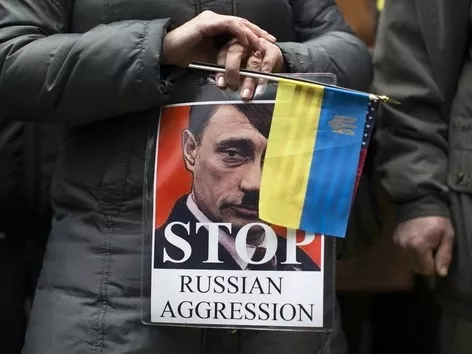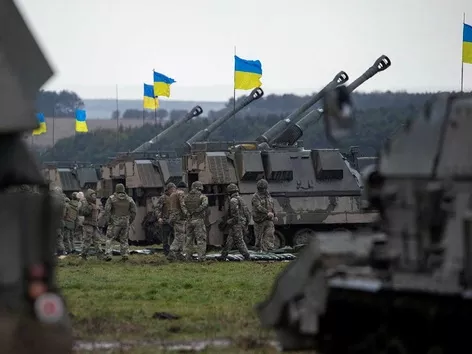Fake is always sweeter: how many Ukrainians can tell a lie and in what social networks it is more

The limited media literacy and distrust of traditional sources of information among Ukrainians increase the risk of falling into the trap of fake news. Find out what percentage of Ukrainians can recognize false information and how to fight fake news on the Internet
Nowadays, social media has become an integral part of many people's lives. In times of war, Ukrainians prefer to receive up-to-the-minute information, which is published on social media. However, breaking news is not always reliable. Here's a look at how well Ukrainians are able to tell the difference between truth and fake news and which platforms are most relevant to this problem.
According to studies and surveys conducted in Ukraine, it has been found that many citizens have limited skills in distinguishing fake information from real news. This is due to a variety of factors, including a lack of media literacy and distrust of traditional sources of information.
Among the various social media platforms, such as Facebook, Twitter, Instagram, YouTube, and Telegram, Ukrainians are most likely to share fake news on Facebook and Telegram. These platforms make it easy to spread information without sufficient fact-checking. Many social media users tend to believe everything they see in their news feeds and do not always turn to trusted sources.
At the same time, it is worth noting that some platforms have different algorithms for presenting information than others. For example, Facebook warns its users that they may be exposed to false information. False posts show signs of verification - the post is in the feed, but it is blacked out.
What percentage of Ukrainians are able to distinguish fake from the truth?
According to a USAID-Internews study conducted at the end of 2022, only 14% of Ukrainians can fully distinguish between true and false messages. To measure this, researchers annually give respondents three theses to evaluate: some of them are true, some are not. Thus, respondents have to determine what is true and what is fake.
For comparison, in 2021, the share of those who correctly assessed all three messages was 24%, and in 2020 it was only 3%. In 2019, 11% of Ukrainians could probably tell the difference between truth and fake news.
Visit Ukraine on social media: Telegram | YouTube | Instagram | Facebook | Twitter | TikTok
Why are the results disappointing?
Possible reasons why fake news is so successful in Ukraine may be related to social tensions and, of course, the ongoing war in the country.
It is worth noting, however, that the Ukrainian government is trying to improve this indicator. We can see how the number of official pages of various agencies on social media has recently increased. This step is aimed at ensuring that Ukrainians receive only official and verified information, and not the opinions of unnamed experts and various dubious sources.
How to fight fake information?
In order to overcome this problem, a number of measures should be taken to raise awareness among Ukrainians and combat the spread of fake news on social media, for example
- Education and media literacy: One of the key points is to increase public awareness of media literacy. Consideration could be given to including lessons on assessing the reliability of information, critical thinking, and finding reliable sources in educational programs.
- Support for trusted sources (actively practiced in Ukraine): Creating and supporting reliable sources of information that actively fight the spread of fake news. Government agencies, non-profit organizations, and journalists still need to strengthen their work in fact-checking and disclosure of information manipulation.
- Improving algorithms and moderation: Social networks should actively work to improve their algorithms for filtering and moderating content, and otherwise take responsibility for the content. By the way, it is not for nothing that artificial intelligence has begun to gain popularity in the world, which could help automate the processes of identifying and removing fake information.
- Awareness and public campaigns: Public campaigns and information events can help raise awareness of the problem of fake news. A broad discussion of the problem in the media and educational institutions will help people develop critical thinking and be more conscious of information on social media.
In conclusion, it is important to understand that fake news is a serious problem in the modern information society. Only through joint efforts can we make progress in the fight against fake news and ensure a reliable and informed environment on social media.
We remind you! Since the start of the full-scale invasion, most international companies have left the russian market, but some businesses continue to sponsor terrorism. Read more about how continuing to operate in russia affects business reputation and how to "pay off" the list of war sponsors here.
You may be interested in:
Visit Ukraine Donation - make a good deed and an important contribution to the Victory of Ukraine;
Visit Ukraine Tours - the largest online database of tours to Ukraine for every taste;
Visit Ukraine Merch - choose patriotic clothing and accessories with worldwide delivery;
Visit Ukraine News - get the latest news and updates in our Telegram channel;
Cooperation - cooperation and advertising integrations with Visit Ukraine and Visit World projects.
Recommended articles
3 min
Popular
After the start of the full-scale invasion, most international companies left the russian market. Find out more about how continuing to operate in russia affects business reputation and how to "pay off" the list of war sponsors
25 Jun. 2023
More details2 min
Way to Victory
What does Prigozhin's rebellion against the russian government mean for Ukraine?
According to experts, the justice march led by Yevgeny Prigozhin is only the beginning of irreversible changes in russia. Find out how the conflict between the Wagner leader and the russian Ministry of Defense will affect Ukraine and the developments at the front
26 Jun. 2023
More details2 min
War
Terrorist attack on ZNPP: what is known about the preparations and what to expect from russia
On the evening of June 25, the Ukrainian authorities announced that the plan for a terrorist attack on the ZNPP had been fully developed and approved. Find out why the situation at the plant is called critical and what to expect from russia
26 Jun. 2023
More details1 min
War
International Day in Support of Victims of Torture: why torture continues in the 21st century
The international community has resisted the spread of various forms of violence and abuse. But with the outbreak of full-scale war in Ukraine, the situation has worsened. Find out why torture continues and which organizations support torture victims
26 Jun. 2023
More details

